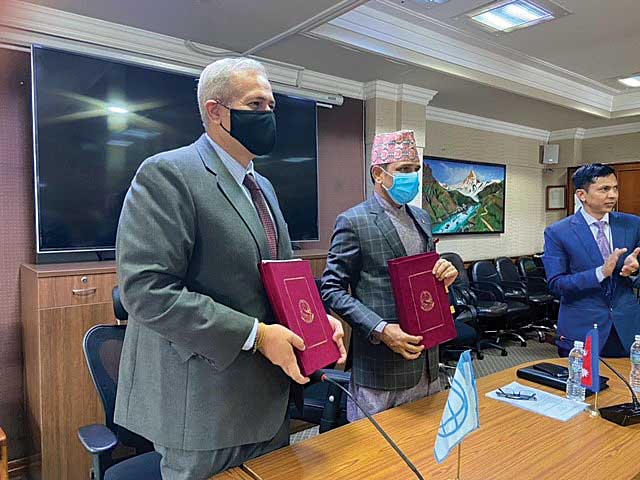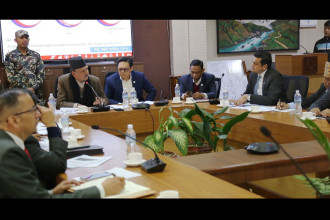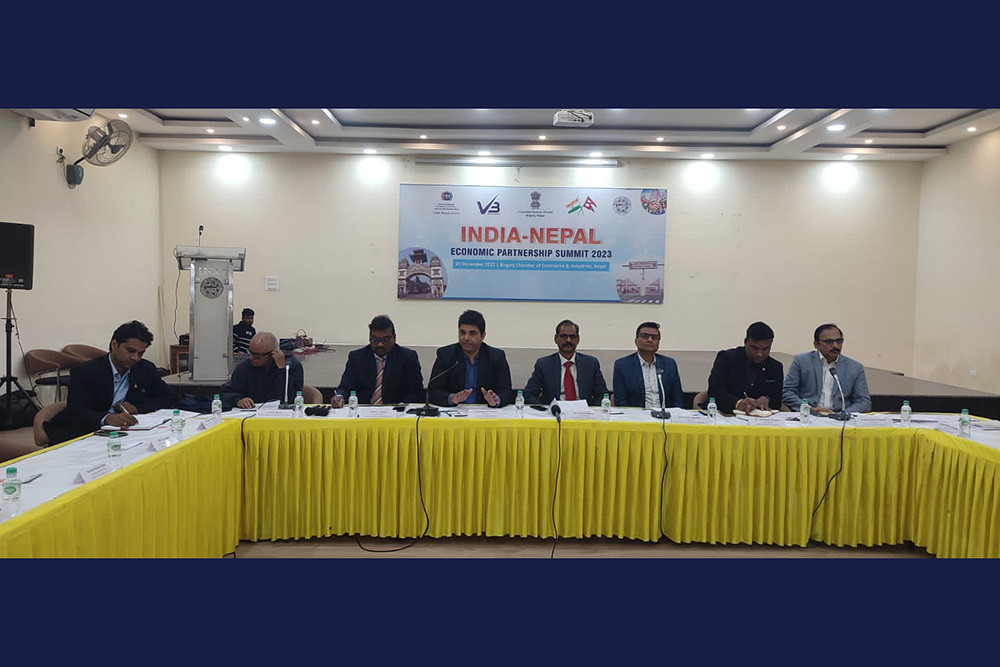
The government and World Bank signed two separate additional financing agreements of $50 million each on September 15 to support the implementation of the government’s flagship School Sector Development Programme in the education sector and public management reforms in the health sector. The agreements were signed by Finance Secretary Madhu Kumar Marasini on behalf of the government and World Bank Country Director for Maldives, Nepal, and Sri Lanka, Faris Hadad-Zervos.
“Strengthening Nepal’s education and health systems is an essential element of building back better from the pandemic,” said Marasini. “The reform agenda championed by the Nepal Health Sector Programme for Results is critical to Nepal’s vision of an efficient, effective, transparent and accountable health system, and together with the School Sector Development Programme, provides a catalyst for improved human capital development enabling Nepal to compete strongly post-Covid.”
The Additional Financing to the School Sector Development Programme will help reduce dropouts and mitigate learning losses by supporting pro-poor targeted scholarships, pro-science scholarships, and catch-up programmes. It will lay the foundation for the next school sector successor programme in two areas – assessment and data systems, and help create the fiscal space to fill the gap in financing the government’s flagship programme.
The Additional Financing for Nepal Health Sector Management Reform Programme for Results will support the original Nepal Health Sector Management Reform Programme for Results implemented under the leadership of the Ministry of Health and Population. It spearheads reforms in public procurement, financial management, data for decision making and citizen engagement for greater accountability in the health sector.
“These engagements contribute to Nepal’s green, resilient, and inclusive development by making the country’s education and health systems more inclusive and resilient to future shocks, which will in turn help to accelerate human capital development,” stated Hadad-Zervos. “I am very hopeful that the additional financing will help propel Nepal closer to its goal of universal health coverage, and ensure equitable access and improve the quality of education and learning outcomes for children and young people in Nepal.”
Published Date: October 19, 2021, 12:00 am
Post Comment
E-Magazine
RELATED B360 National





